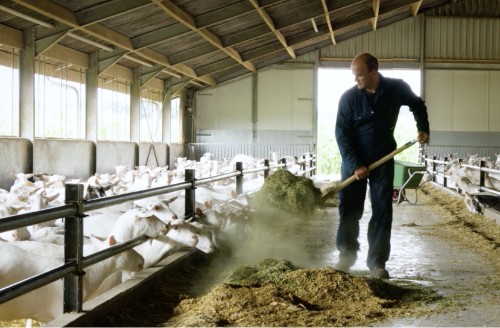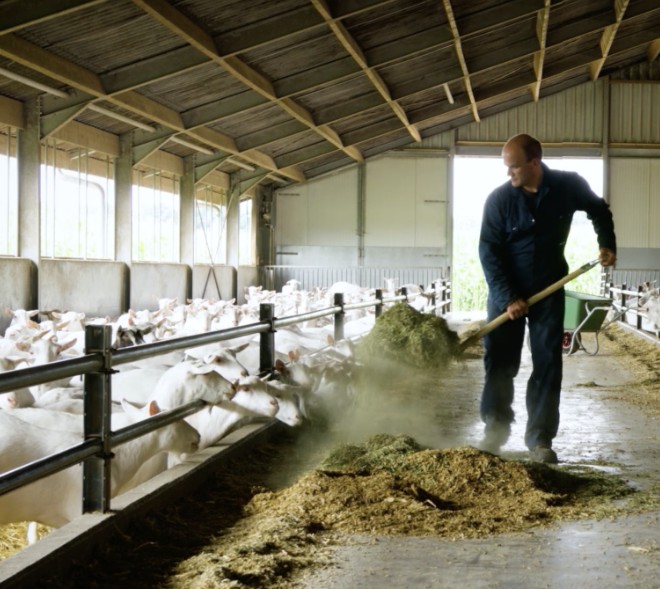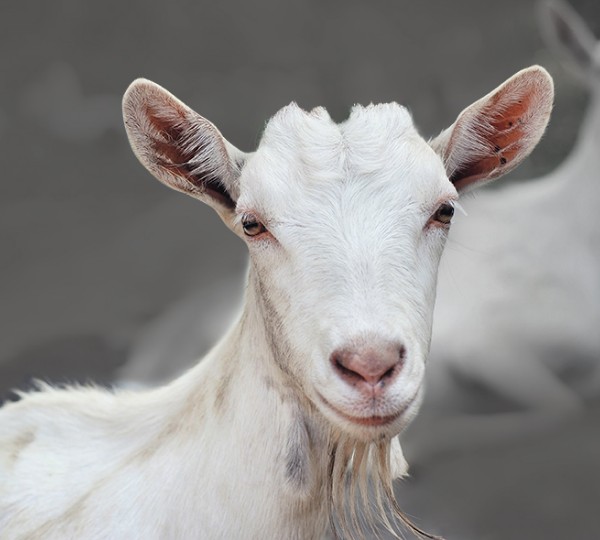Home » Our goat farmers

First-class goat milk from the Amalthea Cooperative of goat farmers is the foundation underlying Amalthea’s products. The cooperative consists of around 50 expert and enterprising goat farmers who have an eye for quality, animal welfare and sustainability.


The cooperative is made up of advocates of the KwaliGeit Programme: the chain’s quality assurance system initiated by the Dutch Goat Dairy Organisation (NGZO). The KwaliGeit Programme sets out the standards of Dutch and European laws and regulations and industry requirements. This strict quality procedure guarantees food safety and quality in the chain. It also helps goat farmers to supply milk of the highest standard. Qlip, an independent audit body, monitors the NGZO’s compliance with the KwaliGeit Programme’s standards.

The cooperative works according to extended lactation cycles. This means that the nanny goats give birth to kids every second year instead of annually. This is good for the health of the nanny goat and ensures that Amalthea has a constant supply of milk. Several studies carried out by Wageningen University show that extended lactation consistently produces good quality milk.
Our goat pens are spacious, fresh and have plenty of daylight. The goats have straw to lie on and live in groups. They have plenty of living space and can move around freely. The goats are also encouraged to behave naturally.
Amalthea dairy goats generally eat a combination of cut maize, grass silage and concentrates. This feed meets their energy, protein and mineral requirements. Together with a livestock feed supplier, the goat farmers monitor and improve the nutrition of their dairy goats throughout the year. Reducing the levels of phosphate in the feed is one of the points for attention. The feed is also accredited by the German Association for Food without Genetic Engineering, which means that the feed has not been genetically modified.
Innovation is in the cooperative’s blood. As part of a relatively new industry, goat farmers are always looking for innovative solutions to meet their challenges. In reality, there is still room for improvements. Having said that, the health of the animals is key, because a healthy, happy goat gives the best milk. An example of this is the extended lactation cycles mentioned earlier.
Strict quality control applies throughout the entire chain. Samples for testing are collected when milk is collected from the farm and when it is transported. Before the milk enters the production process, samples are taken to monitor its quality and to establish the milk’s fat and protein content.
An independent organization then tests the samples. In addition, inspections are carried out and samples are taken during production and maturation to complete the monitoring process throughout the chain. This strict quality procedure is essential to guarantee food safety, while at the same time helping us and our farmers to learn and improve things every day in pursuit of the highest standards.
As a leading, reliable and cost-effective cheesemaker producing a wide range of semi-hard goat and organic cow cheeses, we pay a lot of attention to our cheese-making process. Our highly trained cheesemakers play a leading role in this. At our ultra modern factory in Rijen, they oversee the artisanal Dutch cheese-making process according to modern standards, while respecting traditional methods.
Both the Amalthea company and the cooperative believe in transparency in the chain and when it comes to the environment. Several goat farmers who are members of the cooperative have education programmes for primary and secondary schools and tertiary education institutes on their farms. Groups can also visit the farms. We also frequently collaborate with universities about animal welfare research.
Amalthea is the goat cheese producer in the Netherlands. No wonder our products are sold in more than 35 countries.
Read more >